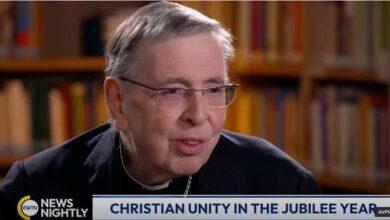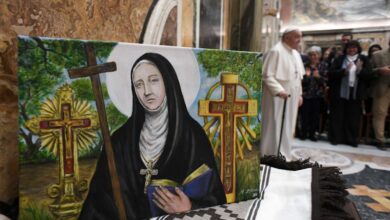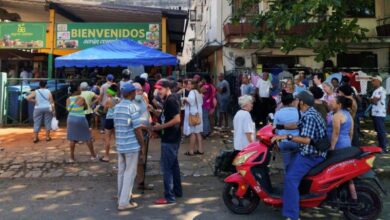Cardinal Pizzaballa: Peace in Holy Land built on dialogue, action
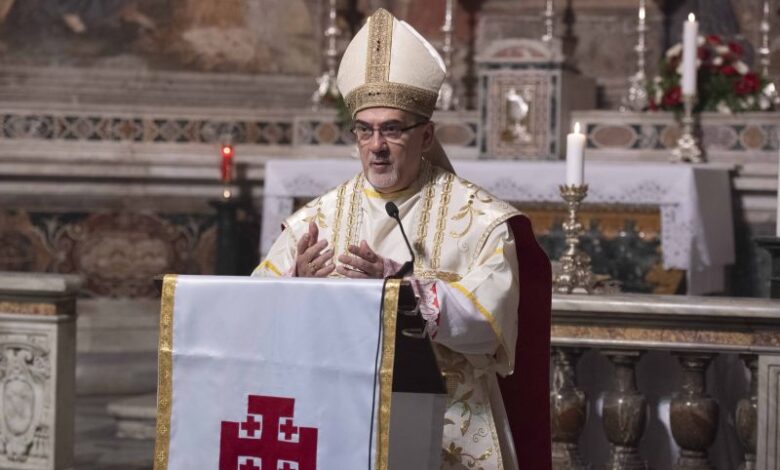
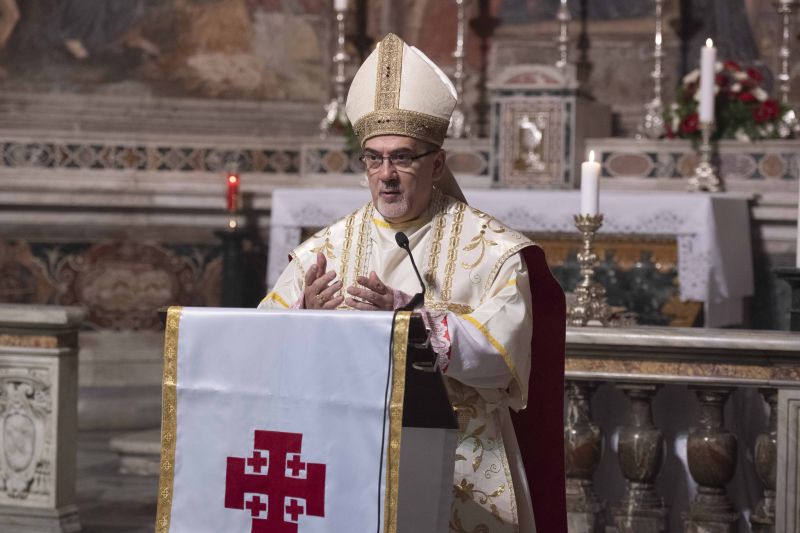 Cardinal Pierbattista Pizzaballa gives the homily at a Mass in which he took possession of his titular church, St. Onuphrius, in Rome on May 1, 2024. / Credit: Vatican Media
Cardinal Pierbattista Pizzaballa gives the homily at a Mass in which he took possession of his titular church, St. Onuphrius, in Rome on May 1, 2024. / Credit: Vatican Media Rome Newsroom, May 3, 2024 / 12:21 pm (CNA).
The Latin patriarch of Jerusalem delivered an impassioned lecture on Thursday at the Pontifical Lateran University in Rome detailing the process of peace in the ongoing Israel-Hamas war, noting that it is an integral part of the Church’s universal mission and one that must not be conflated with overtly temporal or political aims.
“Peace needs the testimony of clear and strong gestures on the part of all believers, but it also needs to be announced and defended by equally clear words. We cannot remain silent in the face of injustices or invite people to live peacefully and disengage,” Cardinal Pierbattista Pizzaballa remarked during his “lectio magistralis” on Thursday at the pontifical university.
“The preferential option for the poor and the weak, however, does not make us a political party,” he added.
The hourlong lecture, titled “Characteristics and Criteria for a Pastoral Care of Peace,” was the latest installment in the university’s ongoing series of studies in peace sciences and international cooperation launched by the school’s Pontifical Pastoral Institute Redemptor Hominis.
The cardinal stressed that the Israel-Hamas conflict is not just an issue for the local Church but also an issue for the universal Church.
“What I tend to say is that conflict is not a temporary and secondary issue in the life of our Church,” the cardinal continued; rather, he said, it “is now an integral and constitutive part of our identity as a Church.”
Pizzaballa underlined that “talking about peace, therefore, is not talking about an abstract topic but of a deep wound in the life of the Christian that causes suffering and tiredness, a lot of tiredness, and deeply touches the human and spiritual life of all of us.”
Stressing the universality of the conflict, he added it “involves the life of everyone in our diocese and is therefore an integral part of the life of the Church, of its pastoral care.”
The day before the lecture, Pizzaballa took possession of his titular church in Rome, St. Onuphrius, where he spoke on the historic, symbolic, and theological links between the Church in the Holy Land and Rome, again expressing the importance of the Holy Land for the universal Church.
“The Church of Jerusalem is the mother Church of the Church, where the roots of the entire universal Church lie, and it is a place that still retains a local and universal character today,” he said during his May 1 homily.
In his lecture on Thursday, Pizzaballa made overtures to the historical roots of the conflict in order to stress the “plurirelgious” and “pluricultural” nature of the Holy Land and to open a reflection on the importance of narrative in the process of peace.
“These problems of memory cannot be solved by reading one’s own history,” he said. “Intercultural conflicts will not be overcome if we do not reread different readings of the strong religious and cultural histories.”
While arguing that “peace is not the exclusive responsibility of the pastor,” he noted that religious leaders must work to “create contexts in which communities can express themselves.”
“Today, especially in the Holy Land, everyone has their own little story to tell,” he added.
Pizzaballa stressed the importance of dialogue as a critical underpinning of the peace process, noting that through the promotion of “continuous dialogue” and “mutual listening” that “a serious pastoral care in peace is born and developed.”
The cardinal also noted religious leaders must work to promote both “a new culture of legality” as well as to “become a living and prophetic voice of justice, human rights, and peace.”
While acknowledging that there has always been “a close relationship” between ecclesial and civic leaders, playing a delicate role in the “function[ing] in the life of national communities,” Pizzaballa warned that the Church’s call for peace must exist “without entering into logics of competition and division” in order to offer “credible witnesses.”


